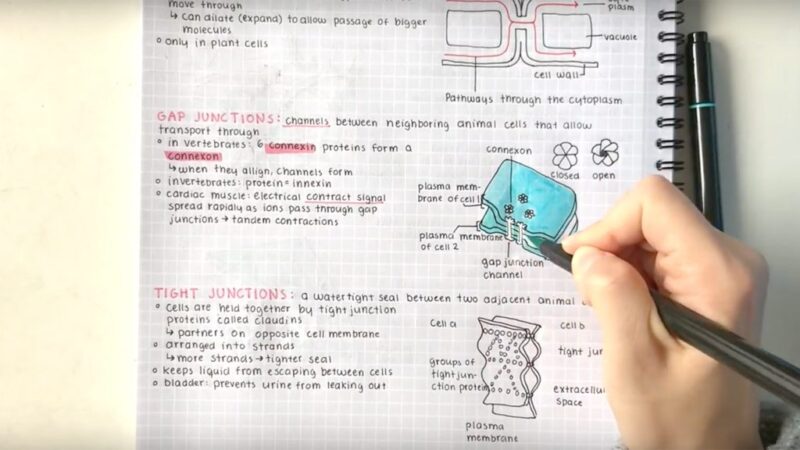In the ever-evolving landscape of the 21st century, exams have solidified their position as pivotal milestones in our academic and professional journeys. They’re not just tests of memory but of understanding, analysis, and application. Whether you’re a student aiming for academic excellence or a professional seeking certifications, exams are the gatekeepers to numerous opportunities. This guide, meticulously crafted for 2024, is designed to be your beacon, illuminating the path from mere preparation to absolute perfection.
1. Understanding Your Exam
Every journey begins with understanding the destination. Exams, in their essence, are diverse. There are multiple-choice exams, which test your precision in selecting the correct answer from a set of options. Then there are essay-based exams, where your depth of understanding, articulation, and coherence come into play. And let’s not forget practical exams, which assess your hands-on skills and real-world application.
But knowing the type isn’t enough. Delve deeper into the format, structure, and evaluation criteria. For instance, while multiple-choice exams might have negative marking for incorrect answers, essay-based ones might reward structure, coherence, and originality. Always make it a point to consult syllabi, guidelines, or instructors to get a comprehensive understanding of the exam’s scope and requirements. This foundational knowledge isn’t just a starting point; it’s the compass that will guide your entire preparation strategy.
2. Creating a Study Plan

Imagine embarking on a journey without a map. That’s what studying without a plan feels like. Begin by designing a personalized study schedule. This isn’t one-size-fits-all; it should reflect your strengths, weaknesses, and commitments. Allocate specific times for each subject, ensuring you cover all topics without feeling overwhelmed.
Setting realistic goals and milestones is the next step. If you have six chapters to cover in two weeks, aim to finish three chapters in the first week, but also allocate buffer time. Life is unpredictable, and having some leeway ensures you stay on track.
The art of balancing subjects and revision time is crucial. It’s tempting to spend days on subjects we love or topics we find challenging, but this can lead to imbalances. Ensure you allocate time for revisiting topics, especially the challenging ones, but also for those you feel confident about. Confidence is good, but overconfidence can be a pitfall.
3. Effective Study Techniques
Passive reading is yesterday’s technique. Today, it’s all about engagement and interaction with your material. Embrace active learning methods. Summarization isn’t just about condensing information; it’s about understanding and then articulating it in your own words, which reinforces memory. Concept mapping isn’t just drawing connections; it’s visualizing the vast web of knowledge, seeing how one concept flows into another. Flashcards, on the other hand, are the perfect blend of summarization and active recall.
The science-backed techniques of spaced repetition and retrieval practice are game-changers. While the former involves reviewing information at increasing intervals to cement it in your memory, the latter is about actively recalling information without looking, which strengthens neural connections. And in our digital age, the world is at our fingertips. Platforms like Khan Academy, Coursera, and many others offer a plethora of online resources that transform learning from a monologue to a dialogue.
4. Resource Selection

In the age of information, the challenge isn’t the lack of resources but their abundance. Choosing the right study materials can be the difference between a good score and a great one. Always opt for reliable textbooks and notes, preferably recommended by instructors or peers who have treated the path before you. But don’t stop there.
Online platforms such as Gizmo are treasure troves. They offer videos, tutorials, and interactive modules that can break down the most complex of topics into digestible chunks. Remember, the key is diversification. Diversifying your resources ensures you get a 360-degree view of topics, leaving no stone unturned.
5. Time Management Strategies
Time, as they say, waits for no one. And in exam preparation, it’s the most valuable currency. Prioritizing tasks based on their importance and difficulty ensures you’re always ahead of the curve. But what about the ever-looming shadow of procrastination? Combat it with techniques like time-blocking, where you allocate specific blocks of time for focused study, making procrastination less likely.
But it’s not all about studying. Incorporate breaks to rejuvenate. These aren’t wasted moments; they’re opportunities for your brain to assimilate information, ensuring a healthy and sustainable study routine.
6. Effective Note-Taking

Notes are more than just written words; they’re the essence of hours of study, distilled. While taking notes, always focus on key concepts, but also differentiate them from supporting details. This hierarchical approach ensures clarity.
Experiment with various note-taking methods. The Cornell method offers a structured approach, while mind mapping is more fluid, perfect for subjects that have interconnected topics. In this digital age, don’t shy away from using digital tools for note-taking. They offer flexibility, searchability, and portability. And as you go through textbooks and resources, annotate. Highlight, underline, and jot down insights in the margins. Engage actively with the material, making it truly yours.
7. Mindset and Mental Preparation
The mind is the most powerful tool in your arsenal. Cultivating a positive, growth-oriented mindset is paramount. This isn’t about blind optimism but about genuine belief in your capabilities, backed by consistent effort. Exams can be stressful, and managing exam-related stress becomes crucial. Techniques like deep breathing, meditation, or even short walks can work wonders. Embrace relaxation exercises and mindfulness techniques. Remember, a calm mind is a focused mind, and a focused mind achieves excellence.
8. Practice Makes Perfect

The age-old adage holds true, especially for exams. Practicing with past papers and sample questions does more than just familiarize you with the format; it hones your skills, timing, and confidence. Simulating exam conditions, like timed practice in a quiet environment, builds endurance and reduces anxiety. And when you make mistakes – and you will – embrace them. Analyze them. They’re not setbacks; they’re stepping stones to perfection.
9. Group Study and Collaboration
Learning isn’t always a solitary journey. Group studies offer a mosaic of perspectives, insights, and understandings. They promote knowledge sharing and can fill gaps in individual understanding. But for them to be effective, ground rules are essential. Stay focused, allocate topics, and ensure everyone is on the same page. And in our interconnected world, don’t limit yourself to physical groups. Online forums, study groups, and collaborative platforms offer opportunities for collective learning, transcending geographical boundaries.
10. Revision and Review Strategies
Revision is where preparation meets perfection. It’s about revisiting, refining, and reinforcing. Break your revision into manageable chunks. Don’t just read; interact. Use visual aids like diagrams, flowcharts, or even doodles to represent complex processes. Mnemonics can be your best friends, turning abstract concepts into memorable phrases or sequences. And always, always revisit.

